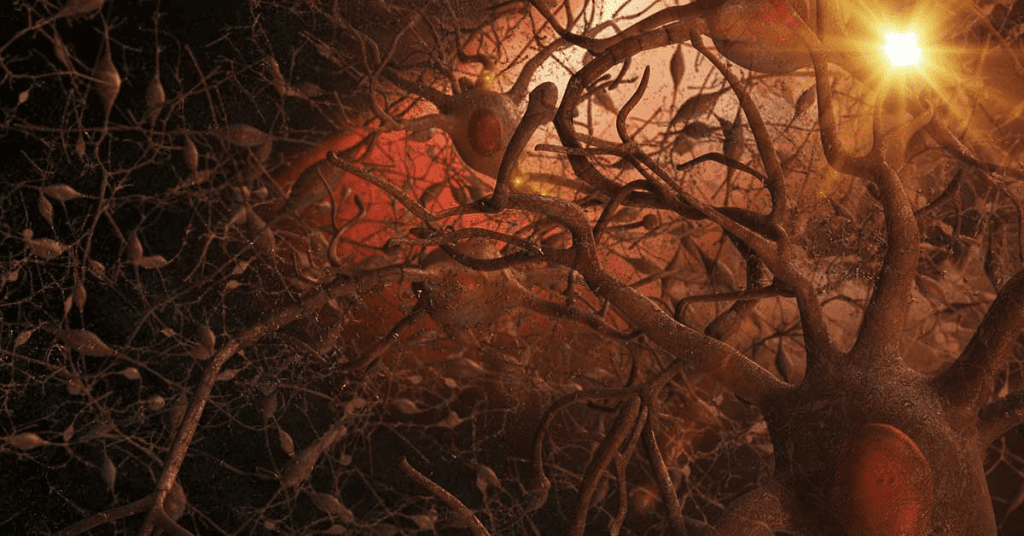In a groundbreaking scientific discovery, researchers have recorded human brain activity during the final moments of life for the first time. This remarkable finding reveals what could be happening in our minds as we approach death, shedding light on the possibility of “life recall,” where individuals may experience a flashback of memories in their last moments. Led by Dr. Ajmal Zemmar from the University of Louisville, the study offers a fascinating glimpse into the mystery of death, suggesting that our brains may engage in reflective activity even after our hearts stop beating.

A Serendipitous Discovery
The discovery happened by chance when an 87-year-old man with epilepsy was undergoing electroencephalography (EEG) to monitor his seizures. During the procedure, the patient unexpectedly suffered a heart attack and passed away. This gave the research team a rare and unprecedented opportunity to record brain activity before, during, and after death. What they found was astonishing and provided a unique window into the neurological process of dying.
Brain Activity Beyond Death
The team measured the patient’s brain activity for 900 seconds, with a particular focus on the critical 30 seconds before and after the heart stopped. What they observed were gamma oscillations—brain waves associated with memory retrieval, dreaming, and higher cognitive functions. This finding suggests that the brain remains active during the final moments of life, potentially engaged in a process that mirrors what people describe in near-death experiences.
What Is “Life Recall”?
“Life recall” refers to the experience reported by individuals who have had near-death experiences, often describing a vivid playback of their life’s most significant moments. The gamma oscillations recorded in this study imply that the brain might undergo a similar process just before death. These waves are linked to memory and consciousness, leading researchers to hypothesize that, as the body shuts down, the brain may be reflecting on key life events.
Similarities to Near-Death Experiences
The brain activity observed in this study shares similarities with the brain waves seen during meditative states and dreaming, particularly gamma waves. This discovery strengthens the connection between near-death experiences and actual neurological events. Many people who have survived near-death experiences describe seeing their life “flash before their eyes,” a phenomenon that might now have a scientific explanation. These gamma oscillations suggest that the brain may engage in reflective or memory-based activities as it approaches death.
Activity Persists After the Heart Stops
One of the most surprising findings in this study was the continuation of brain activity even after the heart had stopped. This discovery raises thought-provoking questions about the definition of death itself. Traditionally, death is declared when the heart stops beating, but this new research suggests that the brain may continue functioning briefly after cardiac death. This not only blurs the line between life and death but also invites deeper discussions about when exactly death should be declared.
Implications for Defining Death

The persistence of brain activity following the cessation of the heartbeat challenges the conventional understanding of when death occurs. If brain function continues after the heart stops, should the moment of death be reconsidered? This study could spark debates among medical professionals and ethicists regarding the criteria for declaring someone dead. The idea that the brain might remain active raises questions about our current practices and how we approach the end of life.
Potential Impact on Organ Donation
This discovery may have significant implications for organ donation. Currently, organ donation typically begins after the heart stops and the patient is declared dead. However, if brain activity continues after cardiac death, this could influence the timing of organ donation. Some experts may argue that EEG monitoring should be considered as part of the process to better understand when brain activity ceases, ensuring that donations occur under the most informed circumstances.
A Source of Comfort?

For those grieving the loss of a loved one, these findings might offer some solace. Dr. Zemmar pointed out that the possibility of “life recall” could mean that the brain is replaying happy memories during its final moments. The thought that a person may relive some of their most cherished moments before passing could bring comfort to families, knowing that their loved one’s last experience may have been peaceful and filled with pleasant recollections.
Limitations of the Study
While the study’s findings are groundbreaking, it’s essential to acknowledge its limitations. The research was conducted on a single patient with epilepsy, a condition known to affect brain function. This raises questions about whether these results are representative of the general population. However, similar studies conducted on animals, such as rats, have shown comparable brainwave patterns during death, suggesting that this phenomenon may not be unique to humans or specific to epileptic patients.
What’s Next?

This research opens the door to a multitude of questions that scientists are eager to explore. One of the key questions is whether these brainwave patterns are universal—do all people experience this type of brain activity at the time of death, or is it a rare occurrence? Further studies will be needed to investigate if these findings can be generalized across different individuals and conditions.
Additionally, this discovery may lead to new discussions on the nature of consciousness, life, and death. What does it mean if the brain can continue functioning, even momentarily, after the body has technically died? The study raises more questions than answers, but it represents an exciting step forward in understanding what happens when we die.
Conclusion: A New Understanding of Life and Death
The first-ever recording of human brain activity during death provides an extraordinary glimpse into the final moments of life. The study’s discovery of gamma oscillations, associated with memory and higher cognitive functions, offers a possible explanation for near-death experiences and suggests that our brains may engage in a reflective “life recall” during our last moments. While much more research is needed to confirm these findings, the study invites both scientific and philosophical discussions about what truly happens when we die. For now, this breakthrough offers a fascinating new perspective on the brain’s activity in its final moments and may even provide a measure of comfort for those facing the loss of loved ones.


